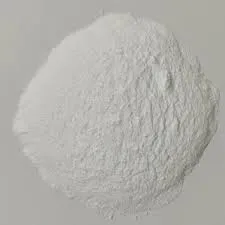The Uses of L-Ornithine L-Aspartate Granules
L-Ornithine L-Aspartate, often referred to as LOLA, is a compound that plays a crucial role in nitrogen metabolism and has gained attention for its therapeutic benefits, particularly in liver-related disorders. Its granule form provides an efficient way of delivering the active compound, ensuring ease of administration and optimal absorption in patients. The primary uses of L-Ornithine L-Aspartate granules range from treating hepatic encephalopathy to alleviating symptoms related to liver dysfunction, among other potential benefits.
Understanding L-Ornithine L-Aspartate
L-Ornithine and L-Aspartate are both amino acids, integral to various metabolic processes within the human body. L-Ornithine is involved in the urea cycle, which detoxifies ammonia—a byproduct of protein metabolism. Elevated ammonia levels can have detrimental effects, particularly on brain function, as it can lead to hepatic encephalopathy (HE), a serious condition characterized by confusion, altered level of consciousness, and even coma in severe cases. L-Aspartate plays a role in energy production and the synthesis of other important molecules. Together, they synergistically help in the detoxification of ammonia and the support of metabolic processes.
Therapeutic Applications
1. Treatment of Hepatic Encephalopathy One of the primary indications for L-Ornithine L-Aspartate granules is the treatment of hepatic encephalopathy. Patients with chronic liver disease often experience increased levels of ammonia in the bloodstream due to impaired liver function. LOLA works by enhancing the removal of ammonia from the blood and thus alleviates the neurological symptoms associated with HE. Clinical studies have shown that LOLA not only reduces blood ammonia levels but also improves cognitive function and overall quality of life in patients experiencing HE.
2. Support for Liver Function Beyond HE, L-Ornithine L-Aspartate granules are beneficial for patients with various liver conditions that lead to impaired detoxification processes. By promoting nitrogen metabolism and ammonia clearance, they help support liver function and alleviate some symptoms associated with liver dysfunction. This is particularly important for patients with cirrhosis or those undergoing liver surgery, where the risk of HE is significantly increased.
3. Enhanced Athletic Performance While the primary use of LOLA is medically oriented, there is a growing interest in its application within sports and fitness. Some athletes and trainers advocate for its use due to its potential to enhance performance and recovery. L-Ornithine is believed to reduce exercise-induced fatigue and ammonia accumulation. This can be particularly advantageous in endurance sports, where prolonged exertion may lead to elevated ammonia levels and subsequent fatigue.
l ornithine l aspartate granules uses

4. Kidney Health Emerging research also indicates that L-Ornithine L-Aspartate may have a protective role in certain kidney diseases. By assisting in nitrogen management, LOLA could potentially mitigate the risks associated with kidney dysfunction, providing another avenue for therapeutic intervention.
5. Potential Neuroprotective Effects Preclinical studies suggest that L-Ornithine L-Aspartate may exert some neuroprotective effects, possibly through its role in reducing ammonia toxicity in the brain and enhancing general metabolic function. This potential application in neurodegenerative diseases and recovery from brain injuries is still under investigation but holds promise for future research.
Administration and Dosage
L-Ornithine L-Aspartate granules are generally administered orally and can be easily mixed with water or other suitable liquids. The dosage may vary based on the condition being treated, the severity of symptoms, and the patient's overall health. It is crucial for patients to follow their healthcare provider's instructions closely, as improper dosage may result in inadequate treatment or unwanted side effects.
Side Effects and Considerations
While L-Ornithine L-Aspartate is considered safe for most patients, it is essential to be aware of potential side effects, which may include gastrointestinal discomfort, nausea, or diarrhea. Patients with specific allergies or those on certain medications should discuss the use of LOLA with their healthcare provider to avoid any adverse interactions.
Conclusion
In summary, L-Ornithine L-Aspartate granules serve multiple important functions, chiefly in the management of hepatic encephalopathy and support of liver health. Its ability to modulate ammonia levels and support metabolic processes makes it a valuable tool in both clinical and possibly athletic settings. As research progresses, it is anticipated that new applications for LOLA may emerge, further solidifying its place in therapeutic interventions for liver-related disorders and beyond. For those struggling with the effects of liver dysfunction or related disorders, the integration of L-Ornithine L-Aspartate into their treatment regimen could prove beneficial for enhancing quality of life and promoting overall health.

